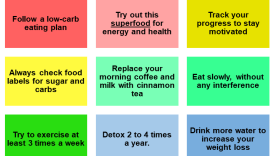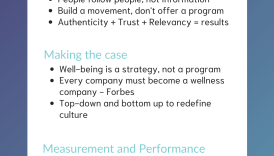Unlocking the Secrets of Sustainable Health and Wellness

Introduction to Sustainable Health and Wellness
The Importance of Sustainable Living
Sustainable living intertwines our well-being with the health of our planet. When individuals embrace practices that are environmentally friendly, they contribute to not only their health but that of future generations. Imagine choosing food from local farmers’ markets; it not only tastes better but reduces carbon footprints and supports community economies. Sustainable living can foster a deep connection to nature, prompting individuals to appreciate the resources around them and how they impact their lifestyle. Some key benefits of sustainable living include:
- Unlocking the Secrets of Sustainable Health and Wellness
- Introduction to Sustainable Health and Wellness
- The Importance of Sustainable Living
- Defining Health and Wellness
- Understanding the Connection Between Mind and Body
- Holistic Approaches to Health
- Implementing Mindfulness Practices
- Nourishing Your Body with Proper Nutrition
- Benefits of a Balanced Diet
- Key Nutrients for Optimal Health
- The Role of Physical Activity in Maintaining Wellness
- Importance of Regular Exercise
- Incorporating Movement into Your Daily Routine
- Cultivating Healthy Habits for Long-Term Wellbeing
- Building a Sustainable Self-Care Routine
- Setting Realistic Health Goals
- Environmental Impact on Health and Wellness
- Sustainable Living Practices
- Creating a Healthy Living Environment
- Mental Health and Emotional Wellbeing
- Strategies for Managing Stress
- Seeking Support for Mental Health Needs
- Enhancing Sleep Quality for Overall Health
- Importance of Adequate Rest
- Tips for Improving Sleep Hygiene
- Improved Environment: Reducing waste and pollution results in a healthier ecosystem.
- Enhanced Health: Choosing organic or whole foods can lead to improved physical well-being.
- Community Resilience: Supporting local businesses helps strengthen local communities.
Defining Health and Wellness
Health and wellness go hand-in-hand but are not synonymous. Health often refers to the absence of disease, while wellness encompasses a holistic view of well-being, including physical, mental, and social aspects. It’s about thriving, not just surviving. To achieve a state of wellness:
- Understand your body’s needs.
- Maintain a balanced lifestyle.
- Engage in activities that promote joy and relaxation.
By recognizing the importance of sustainable living and understanding the broad definition of health and wellness, individuals can embark on a journey towards a more balanced and fulfilling life.
Understanding the Connection Between Mind and Body
Holistic Approaches to Health
When discussing sustainable health and wellness, one cannot overlook the powerful connection between the mind and body. Holistic approaches to health take into account not just physical ailments but also emotional, spiritual, and social well-being. This broad perspective encourages individuals to look beyond symptoms and to explore the root causes of health issues. Consider yoga, for example. This practice emphasizes physical postures along with breath control and meditation, creating a synergy that fosters overall well-being. Other holistic methods include:
- Acupuncture: Helps in pain management and stress relief.
- Herbal Medicine: Utilizes natural remedies to bolster health.
- Nutrition Therapy: Aims to adjust dietary habits for holistic improvements.
Implementing Mindfulness Practices
Mindfulness practices serve as a bridge between the mind and body, promoting awareness in every aspect of life. Techniques such as meditation, deep breathing, and progressive muscle relaxation can help individuals reconnect with their bodies. To implement mindfulness:
- Set aside a few minutes each day for meditation.
- Practice conscious breathing to center yourself.
- Engage fully in daily activities, savoring each moment.
Incorporating these practices can lead to profound changes in how we experience stress and manage our health, paving the way for a more balanced life. By nurturing both the mind and the body, sustainable wellness becomes an attainable goal.
Nourishing Your Body with Proper Nutrition
Benefits of a Balanced Diet
Transitioning from a deeper understanding of the mind-body connection, let’s explore how nutrition plays a critical role in sustainable health and wellness. A balanced diet is foundational to nurturing our bodies. It helps maintain optimal weight, boosts energy levels, and enhances mental clarity. For example, I once struggled with afternoon slumps at work, often reaching for sugary snacks. After committing to a balanced diet, including whole foods and healthy fats, those slumps faded away. Some benefits of maintaining a balanced diet include:
- Improved Mood: Nutrient-rich foods can enhance brain function and emotional well-being.
- Stronger Immune System: A varied diet helps fend off illnesses.
- Better Digestive Health: Fiber-rich foods promote healthy digestion.
Key Nutrients for Optimal Health
To truly nourish your body, understanding key nutrients is essential. Your body thrives on:
- Proteins: Crucial for muscle repair and growth (e.g., legumes, lean meats).
- Healthy Fats: Important for brain health (e.g., avocados, nuts).
- Vitamins and Minerals: Vital for numerous bodily functions (e.g., fruits and vegetables).
Incorporating these nutrients into meals not only enhances overall health but also contributes to sustainable living by often emphasizing whole, unprocessed foods. Nurturing your body through proper nutrition is an integral step towards long-term wellness!
The Role of Physical Activity in Maintaining Wellness
Importance of Regular Exercise
Building on the vital aspect of nutrition, let’s now delve into the equally important role physical activity plays in maintaining wellness. Regular exercise is not just a means to an end; it’s a way to enhance overall health and well-being. Engaging in consistent physical activity can lead to:
- Improved Cardiovascular Health: Strengthens the heart and reduces the risk of heart disease.
- Enhanced Mood: Exercise releases endorphins, often referred to as “feel-good hormones,” which can help alleviate stress and anxiety.
- Increased Energy Levels: Contrary to popular belief, staying active often boosts energy rather than depletes it.
I remember when I started jogging a few times a week; within weeks, my energy surged, positively impacting my productivity at work.
Incorporating Movement into Your Daily Routine
Incorporating movement into your daily routine doesn’t have to be daunting. It can be as simple as:
- Taking the Stairs: A quick activity that adds up over time.
- Walking Meetings: Conduct discussions while walking instead of sitting.
- Short Activity Breaks: Set a timer every hour to stand and stretch or take a quick walk.
By embedding these small changes into your day, you can enjoy the myriad benefits of regular exercise, seamlessly contributing to a sustainable and healthy lifestyle. Engaging in physical activity is not just an obligation; it’s a pathway to thriving and enjoying life more fully!
Cultivating Healthy Habits for Long-Term Wellbeing
Building a Sustainable Self-Care Routine
Continuing from the exploration of physical activity, cultivating healthy habits is essential for achieving long-term wellbeing. One foundational aspect of this is creating a sustainable self-care routine. Self-care goes beyond pampering; it’s about prioritizing your well-being physically, mentally, and emotionally. Effective self-care routines can include:
- Regular Reflection: Journaling about your thoughts and feelings to gain clarity.
- Mindfulness Practices: Incorporating meditation or breathing exercises into your day.
- Nutrition Check-Ins: Assessing your dietary choices weekly to ensure balance.
For instance, I started a weekly self-care ritual, dedicating Sunday evenings to plan meals and reflect on the week, which provided a refreshing start to each week.
Setting Realistic Health Goals
Setting realistic health goals is another key component. It’s essential to establish goals that are attainable and measurable. Rather than aiming for perfection, focus on gradual improvements. Consider using the SMART criteria for setting goals:
- Specific: Define clear objectives (e.g., “I will walk for 30 minutes three times a week”).
- Measurable: Track progress so you can celebrate small victories.
- Achievable: Ensure your goals are realistic for your lifestyle.
- Relevant: Align goals with your overall health vision.
- Time-bound: Set a timeframe for achieving these goals.
By weaving these healthy habits into your life, you create a robust foundation for lasting wellness, empowering yourself to thrive every day!
Environmental Impact on Health and Wellness
Sustainable Living Practices
As we transition from cultivating healthy habits, let’s explore how our environment plays a crucial role in our overall health and wellness. Sustainable living practices can significantly impact personal well-being while also caring for the planet. By making mindful choices, individuals can create a healthier lifestyle for themselves and future generations. Some effective sustainable living practices include:
- Reducing Waste: Adopting a minimalist lifestyle by decluttering and recycling.
- Choosing Eco-friendly Products: Opting for non-toxic cleaning supplies and personal care items.
- Supporting Local Produce: Shopping at farmers’ markets not only benefits your health but also strengthens community bonds.
I remember the first time I switched to reusable shopping bags; it felt good to contribute to reducing plastic waste while fostering a sense of responsibility towards the planet.
Creating a Healthy Living Environment
Creating a healthy living environment also involves paying attention to the spaces we inhabit. Consider:
- Indoor Air Quality: Use air purifiers and keep plants that naturally filter toxins.
- Natural Light: Maximize sunlight exposure to improve mood and energy levels.
- Decluttering: A tidy space can reduce stress and increase productivity.
By integrating sustainable living practices and creating a healthy environment, individuals not only enhance their own wellness but contribute to a broader positive impact on the world around them. Embracing these changes can lead to a more balanced and fulfilling life!
Mental Health and Emotional Wellbeing
Strategies for Managing Stress
Transitioning from creating a healthy living environment, let’s delve into the significant area of mental health and emotional well-being. One of the most effective ways to maintain mental health is by managing stress. Life can get hectic, but having a toolkit of strategies can help individuals cope better. Here are some practical stress management techniques:
- Mindfulness and Meditation: Dedicating just a few minutes daily can help ground you. I’ve found that starting my mornings with a short meditation session makes a world of difference.
- Physical Activity: Regular exercise is a proven stress reliever. Even a brisk walk can shift your mood.
- Journaling: Writing down thoughts and feelings can provide clarity and reduce anxiety.
Seeking Support for Mental Health Needs
It’s also crucial to recognize when extra support is needed. Seeking help for mental health needs is a sign of strength, not weakness. Building a support system can be transformative. Consider these approaches:
- Therapy: Professional guidance provides invaluable tools and insights.
- Support Groups: Connecting with others facing similar challenges can foster a sense of belonging.
- Open Conversations: Sharing feelings with trusted friends or family can lighten the load and enhance emotional connections.
By adopting effective stress management strategies and being open to seeking support, individuals can nurture their mental health and emotional well-being, paving the way for a more fulfilling life!
Enhancing Sleep Quality for Overall Health
Importance of Adequate Rest
Continuing from our exploration of mental health, let’s discuss the pivotal role that sleep plays in overall wellness. Adequate rest is often underestimated, yet it’s essential for both physical and mental health. Sleep affects everything from cognitive function to emotional regulation. I remember when I used to skimp on sleep, thinking I would be more productive. Instead, I found myself more forgetful and irritable. Research shows that quality sleep can lead to:
- Enhanced Memory: Sleep helps consolidate memories and improve learning.
- Better Mood: A well-rested mind is more resilient to stressors.
- Strong Immune Function: Sleep strengthens the immune system, keeping illnesses at bay.
Tips for Improving Sleep Hygiene
To optimize sleep quality, incorporating good sleep hygiene practices is essential. Here are some tips that I’ve found effective:
- Create a Sleep Schedule: Go to bed and wake up at the same time daily to regulate your body’s clock.
- Limit Screen Time: Reduce exposure to screens at least an hour before bed; the blue light can disrupt melatonin production.
- Create a Relaxing Bedtime Routine: Engage in calming activities like reading or gentle stretching to signal your body it’s time to wind down.
By prioritizing adequate rest and implementing these sleep hygiene tips, individuals can enhance their overall health and enjoy the benefits of refreshed energy and clarity each day!





